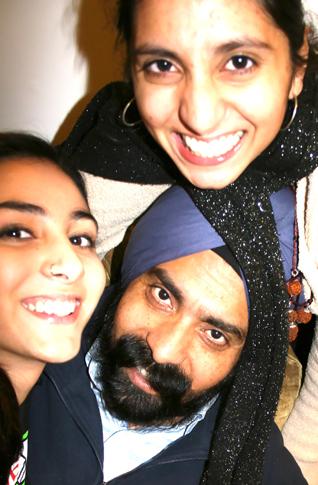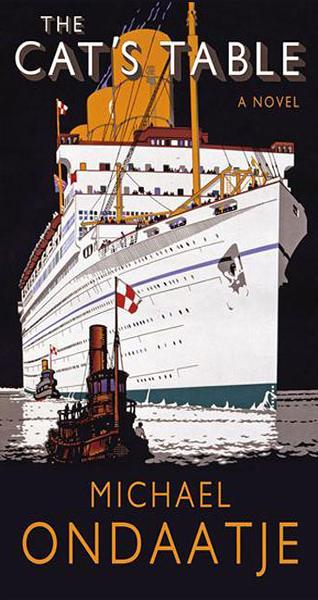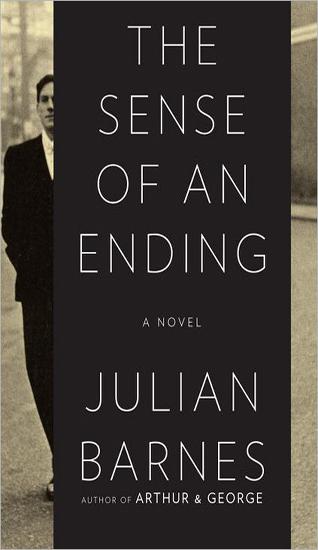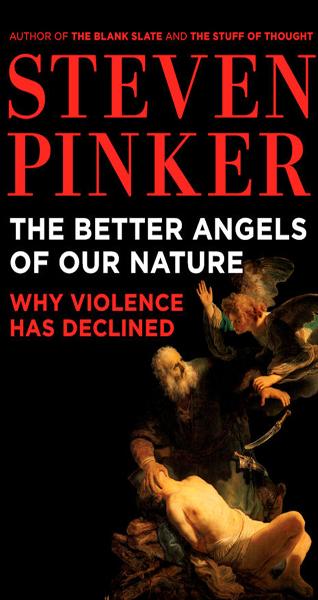Books
My Best Reads of 2011
Part I
by AJIT SINGH
In 2010 I wrote: “… adventure and uncertainty are indeed soul mates.”
This past year was the ultimate antithesis of that experience: adventure and stability can co-exist, at least for brief periods of time. Whether I find solace in stability is a whole another discussion.
Professionally, Artiman Ventures has turned out to be the perfect kernel - just the right amalgamation of curiosity and creativity, pragma and dogma, structure as well as lack of structure. I also find myself at a place where I am no longer the most weird and quirky person. Finally, it has given me just enough flexibility to stay in touch with my very first love: academia. Between Artiman and Stanford, I am experiencing an extended episode of intellectual rejuvenation.
On the personal front, I have my library back. After three years of nomadic life, all my books are at one place, and I can actually see all of them.
I have travelled a fair bit to India over the past year. Time spent there can best be described as my tryst with the future.
I discovered many new authors in 2011. More than half of the selections for this year are by authors I have not read before. The categories for this year’s list remain the same as in the past: Literature, Philosophy, Biology, Management/ Economics, History/ Politics, and Math/ Science.
Many of you are seeing this review for the first time. For your reference, this list is Serial Number 18. It all began in 1993 when a few nerds at Princeton exchanged book recommendations during a snow-laden and otherwise boring weekend.
As in all the previous years, the criterion for including a book in my Top-10 list is very personal: Is this a book that I am likely to read again?
LITERATURE
1 Michael Ondaatje, The Cat’s Table, Alfred Knopf, 2011.
I was introduced to Michael Ondaatje’s flair for storytelling when I watched the movie, The English Patient, in 1996. All of his works, most recently Anil’s Ghost and Divisadero have featured in this list.
Every single one of Ondaatje’s stories explores a new territory, a new setting, a new set of life’s lessons - situated noticeably distant from all of his earlier writings; The Cat’s Table is no exception.
In Ondaatje’s own words, “There is a story, always ahead of you. Barely existing. Only gradually do you attach yourself to it and feel it. You discover the carapace that will contain and test your character. You find in this way the path of your life.”
The Boston Globe gives the most to-the-point description of the book, “A joy and a lark to read ... Within a few pages of the book’s opening, The Cat’s Table has done a miraculous thing - it has ceased to be a book, or even a piece of art. It is merely a story, unfolding before the reader’s eyes, its churning motor a mystery about what it is exactly that happened on this boat ,,, Told in short bursts of exposition so beautiful one actually feels the urge to slow the reading down, the novel shows us how the boy assembles the man.”
The protagonist of the story is an 11-year-old boy Michael, who boards a ship in Colombo, sailing to London, in the early 1950s. He is seated at the “cat’s table” - farthest from the Captain’s table, with two boys, Cassius and Ramadhin and a few other dubious characters. The boys meander through adventures as the ship makes its journey all the way to and through the Suez Canal and crosses into the Mediterranean. Along the way, they get some unexpected lessons - in music and literature, in desire and romance, and in life per se.
While the three-week journey doesn’t quite graduate them into adulthood, they certainly observe adulthood and its vagaries up-close.
Here’s a taste of the biting candor of The Cat’s Table:
The friendship between the quiet Ramadhin and the exuberant Cassious and me grew fast, although we kept a great deal from one another. At least, this was true of me. What I held in my right hand never got revealed to the left. I had already been trained into cautiousness. In the boarding schools we went to, a fear of punishment created a skill in lying, and I learned to withhold small pertinent truths. Punishment, it turns out, never did train or humble some of us into complete honestly.
What is interesting and important happens mostly in secret, in places where there is no power.
I wondered often as I read the story: how does the author know me so well! The Cat’s Table is a compelling blend of beautiful prose and masterful storytelling.
2 Julian Barnes, The Sense of an Ending, Alfred A. Knopf, 2011.
Barnes is a writer of distinction. I have known this from afar over the years as he won his many accolades - including the Somerset Maugham Award and the E.M. Forster Award. But I never got around to reading any of his work. Until a delayed flight at SFO had me lingering at the bookstore.
The first page of The Sense of an Ending drew me in. I am compelled to reproduce it as is:
I remember, in no particular order:
- a shiny inner wrist;
- steam rising from a wet sink as a hot frying pan is laughingly tossed into it
- gouts of sperm circling a plughole, before being sluiced down the full length of a tall house;
- a river rushing nonsensically upstream, its wave and wash lit by half a dozen chasing torchbeams;
- another river, broad and grey, the direction of its flow disguised by a stiff wind;
- bathwater long gone cold behind a locked door.
This last thing isn’t something I actually saw, but what you end up remembering isn’t always the same as what you have witnessed.
We live in time - it holds us and moulds us - but I have never felt I understood it very well. And I am not referring to the stories about how it bends and doubles back, or may exist elsewhere in parallel versions. No, I mean ordinary, every-day time, which clocks and watches assure us passes regularly: tick –tock, click-clock. Is there anything more plausible than a second hand? And yet it takes only the smallest pleasure or pain to teach us time’s malleability. Some emotions speed it up, others slow it down; occasionally it seems to go missing - until the eventual point where it really does go missing, never to return.
Winner of the 2011 Man Booker Prize, this novel tells the story of a middle-aged man who attempts to calibrate himself and to decipher who he really is, by examining his past that he has subconsciously avoided thinking about. A revisionist - alternatingly by choice and by chance - he has to come to terms with a renewed interpretation of facts, people, events and thoughts from a
time bygone, in the context of a renewed awareness of himself.
As Vogue magazine puts it, “Elegiac yet potent, The Sense of an Ending probes the mysteries of how we remember and our impulse to redact, correct - and sometimes entirely erase - our pasts ...
Barnes’s highly wrought meditation on aging gives just as much resonance to what is unknown and unspoken as it does to the momentum of its own plot.”
I have just started reading Julian Barnes’ first novel, Metroland. The next in the queue is Arthur and George. And then Pulse.
PHILOSOPHY
3 Steven Pinker, The Better Angels of Our Nature: Why Violence Has Declined, Viking, 2011
Many of Steven Pinker’s earlier works - notably The Stuff of Thought, The Blank Slate, How the Mind Works, and The Language Instinct - have been my favorite reads, and have featured in this list in the past years. While it was The Language Instinct that got me hooked to his work in 1994, I found his debate with Malcolm Gladwell in the New York Times in 2009 to be the most memorable (http://www.nytimes.com/2009/11/15/books/review/Upfront-t.html). The following passage from his
commentary has stayed in my consciousness ever since:
“Academics often lack perspective … they suffer from ‘the curse of knowledge’: the inability to imagine what it’s like not to know something that they know. That makes them underestimate the sophistication of readers and write in motherese rather than explaining concepts from the ground up.”
Pinker explains concepts from the ground up.
Are pessimism and violence genetic traits, passed along to us through natural selection, or are they byproducts of cultural conditioning?
Controversy over the exact nature of pessimism and violence notwithstanding, Pinker argues that we are not slaves to our genes. We are capable of overcoming our violent instincts for two broad sets of reasons. One, we possess instincts of empathy, and two, we are capable of self-awareness and self-improvement. Starting with this backdrop, Better Angels goes to validate the hypothesis that violence in on decline.
Pinker covers wide ground - drawing upon history, prehistory, statistics, evolution, psychology, governance, state, non-state, and various forms of violence: war, genocide, torture, rape, infanticide, animal abuse, etc. He makes a compelling argument for the “peacing” trend, and for his optimism about it.
While the scope of Pinker’s coverage is vast, the underlying approach to his thesis is essentially empirical. If you are interested in a vantage point rooted in the anthropology of violence, try The Rape of Troy: Evolution, Violence, and the World of Homer, by Jonathan Gottschall. Also, Neurobiology and evolutionary science offer important insights on violence and the natural mechanisms to inhibit it.
However, scientific research in these areas is quite fragmented. The most comprehensive work that I am aware of is Debra Niehof’s The Biology of Violence: How Understanding the Brain, Behavior, and Environment Can Break the Vicious Circle of Aggression, published in 1999.
Just for reference, the phrase “…the better angels of our nature” is attributed to Abraham Lincoln. He said in his first inaugural address in 1861, “We are not enemies, but friends. We must not be enemies. Though passion may have strained, it must not break our bonds of affection. The mystic chords of memory will swell when again touched, as surely they will be, by the better angels of our nature.”
4 Daniel Kahneman, Thinking, Fast and Slow, Viking, 2011
Some years ago, my older daughter and I debated the merits and shortcomings of Malcolm Gladwell’s Blink and Outliers. While both of us actually enjoyed reading the books, Gladwell’s tendency to “extrapolate too quickly” was a turn-off. I recall my daughter saying: if only this subject had been explored by a great psychologist as opposed to a statistician (Gladwell’s education was in History, actually).
Kahneman is a great psychologist. And he has explored this subject. As the reviewer from Boston Globe and Mail puts it, “Brilliant ... It is impossible to exaggerate the importance of Daniel Kahneman’s contribution to the understanding of the way we think and choose. He stands among the giants, a weaver of the threads of Charles Darwin, Adam Smith and Sigmund Freud. Arguably the most important psychologist in history, Kahneman has reshaped cognitive psychology, the analysis of rationality and reason, the understanding of risk and the study of happiness and well-being ... A magisterial work, stunning in its ambition, infused with knowledge, laced with wisdom, informed by modesty and deeply humane. If you can read only one book this year, read this one.”
The best summary of this monumental work, in the author’s own words, is:
“The distinction between fast and slow thinking has been explored by many psychologists over the last twenty five years. For reasons that I explain more fully in the next chapter, I describe mental life by the metaphor of two agents, called System 1 and System 2, which respectively produce fast and slow thinking. I speak of the features of intuitive and deliberate thought as if they were traits and dispositions of two characters in your mind. In the picture that emerges from recent research, the intuitive System 1 is more influential than your experience tells you, and it is the secret author of many of the choices and judgments you make. Most of this book is about the workings of System 1 and the mutual influences between it and System 2.”
If you need a very short trailer to inspire you, check out this video on YouTube showing a conversation between Kahneman and Richard Layard at LSE (http://www.youtube.com/watch?v=i_UVDD7ErJ4). The audio quality is a bit poor but manageable.
Also, his 2010 TED Talk titled “The Riddle of Experience versus Memory” is worth listening to. (http://www.ted.com/talks/daniel_kahneman_the_riddle_of_experience_vs_memory.html)
I had posted Jonah Lehrer’s Proust was a Neuroscientist on this List in 2007. If you liked his style (which is only fifty percent likely - since the various people who have given me an opinion fit a perfectly bipolar distribution), his latest work How we Decide is a perfect companion to Kahneman.
BIOLOGY
5 Siddhartha Mukherjee, The Emperor of All Maladies: A Biography of Cancer, Simon and Schuster, 2010
Every so often comes along a scientist that makes a scientific field accessible to nonscientists. I am not referring to writings about a scientific topic, or even a collection of closely related scientific topics. Many great writers have done that. Several works that I have posted on this list in the past, such as by Oliver Sacks, V.S. Ramachandran, and John Casti, fit that category. Here, I truly mean explaining a scientific field to non-scientists, sort of like writing a comprehensive review article, but for the general audience.
Siddhartha Mukherjee has managed to achieve that for the field of oncology.
Mukherjee studied Biology at Stanford, went to Oxford as a Rhodes Scholar where he got his Ph.D., studied medicine at Harvard, and trained in Oncology at Dana Farber Cancer Center. He is now on faculty at Columbia. Fortunately, this pedigree did not manage to destroy the storyteller in him. The Emperor of All Maladies is, first and foremost, a story. It is comprehensive - and meanders through the history of the disease, the history of approaches to treat it, the biological underpinnings, current standards of care and their limitations, research agendas, macroeconomics of the disease, and the
quest for a cure. Most of all, the human side of the ailment is not lost in any of these discussions.
All in all, it is a must-read! Also, don’t miss the superbly rich and diverse bibliography at the end.
If you have scientific training in Biology, Robert Weinberg’s survey paper, Hallmarks of Cancer, published in Cell in March 2011 is a fantastic read. It is also a truly seminal work of very far reaching implications. Do plan to spend a few days of focused time, however. It is a complex subject, and the article is dense in its coverage. If you want a much lighter treatment by Weinberg, try One Renegade Cell: How Cancer Begins, published in 1999. Weinberg is a professor of Biology at MIT. He Identified and characterized both the first oncogene and the first tumor suppressor gene.
CONTINUED TOMORROW ... Part II
[The author, Dr. Ajit Singh, is currently a partner at Artiman Ventures and focuses on early-stage Technology and Life Science investments. On behalf of Artiman, he serves on the Board of Directors of CardioDx Inc., OncoStem Diagnostics Pvt Ltd, and Aditazz Inc.
Ajit is also a Consulting Professor in the School of Medicine at Stanford University and serves on Board of Directors of Max Healthcare based in New Delhi.
Prior to joining Artiman, Ajit was the President and CEO of BioImagene, a company specializing in Cancer Diagnostics. BioImagene was acquired by Roche in September 2010. Before BioImagene, Ajit spent nearly twenty years at Siemens in various roles, most recently as the CEO of the Digital Radiology business of Siemens Healthcare, based in Germany.
Ajit has a Ph.D. in Computer Science from Columbia University, a Master’s degree in Computer Engineering from Syracuse University and a Bachelor’s degree in Electrical Engineering from Banaras Hindu University, India. He has published two books and numerous refereed articles, and holds five patents.
Ajit has been active in various initiatives pertaining to Sikhism. He has taught at various Sikh summer camps in the New York/ New Jersey area, and has spoken extensively on Women’s issues in the community. He currently mentors Sikh professionals on entrepreneurship, and is active in various programs of the Sikh Research Institute (SikhRI) and the Sikh Coalition.
Ajit and his family live in Palo Alto, New York, and Boston
.]
December 21, 2011
Conversation about this article
1: Baldev Singh (Bradford, United Kingdom), December 21, 2011, 5:56 PM.
Great choices. Reading such books should a priority for all of us, because knowledge is not just power, but the stimulation to change for the better.
2: Ron Weekes (Rexburg, Idaho, USA), November 03, 2012, 8:34 PM.
I recently discovered your "Best Reads" lists. This past April I made my first ever visit to India. My time in Amritsar and at The Golden Temple was the high point of my experience. I cannot read enough Sikh history. At this point I would love to read some novels written by Sikhs. Where do you suggest I start? Sat Sri Akal.






